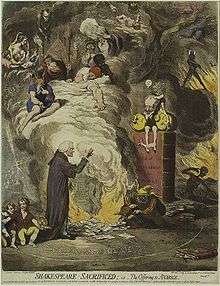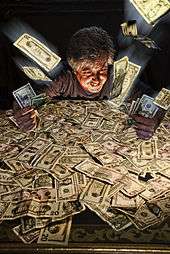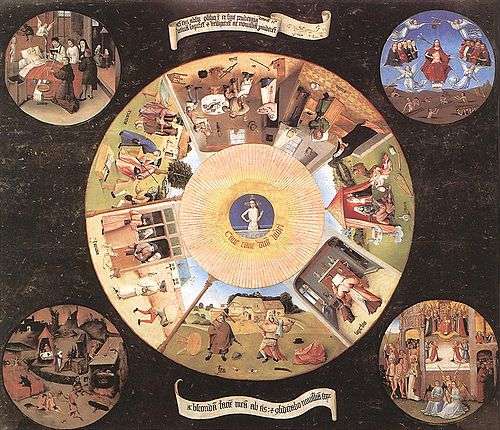Greed




Greed, or avarice, is an inordinate or insatiable longing for unneeded excess, especially for excessive wealth, status, power, or food.
As a secular psychological concept, greed is an inordinate desire to acquire or possess more than one needs. The degree of inordinance is related to the inability to control the reformulation of "wants" once desired "needs" are eliminated. Erich Fromm described greed as "a bottomless pit which exhausts the person in an endless effort to satisfy the need without ever reaching satisfaction." It is typically used to criticize those who seek excessive material wealth, although it may apply to the need to feel more excessively moral, social, or otherwise better than someone else.
The purpose for greed, and any actions associated with it, is possibly to deprive others of potential means (perhaps, of basic survival and comfort) or future opportunities accordingly, or to obstruct them therefrom, thus insidious and tyrannical or otherwise having a negative connotation. Alternately, the purpose could be defense or counteraction from such dangerous, potential negotiation in matters of questionable agreeability. A consequence of greedy activity may be an inability to sustain any of the costs or burdens associated with that which has been or is being accumulated, leading to a backfire or destruction, whether of self or more generally. So, the level of "inordinance" of greed pertains to the amount of vanity, malice or burden associated with it.
Views
Thomas Aquinas says that greed "is a sin against God, just as all mortal sins, in as much as man condemns things eternal for the sake of temporal things."[1]:A1 In Dante's Purgatory, the avaricious penitents were bound and laid face down on the ground for having concentrated too much on earthly thoughts.
Meher Baba dictated that "Greed is a state of restlessness of the heart, and it consists mainly of craving for power and possessions. Possessions and power are sought for the fulfillment of desires. Man is only partially satisfied in his attempt to have the fulfillment of his desires, and this partial satisfaction fans and increases the flame of craving instead of extinguishing it. Thus greed always finds an endless field of conquest and leaves the man endlessly dissatisfied. The chief expressions of greed are related to the emotional part of man."[2]
Ivan Boesky famously defended greed in an 18 May 1986 commencement address at the UC Berkeley's School of Business Administration, in which he said, "Greed is all right, by the way. I want you to know that. I think greed is healthy. You can be greedy and still feel good about yourself".[3] This speech inspired the 1987 film Wall Street, which features the famous line spoken by Gordon Gekko: "Greed, for lack of a better word, is good. Greed is right, greed works. Greed clarifies, cuts through, and captures the essence of the evolutionary spirit. Greed, in all of its forms; greed for life, for money, for love, knowledge has marked the upward surge of mankind."[4]
Inspirations
Scavenging and hoarding of materials or objects, theft and robbery, especially by means of violence, trickery, or manipulation of authority are all actions that may be inspired by greed. Such misdeeds can include simony, where one profits from soliciting goods within the actual confines of a church. A well-known example of greed is the pirate Hendrick Lucifer, who fought for hours to acquire Cuban gold, becoming mortally wounded in the process. He died of his wounds hours after having transferred the booty to his ship.[5]
Genetics
Some research suggests there is a genetic basis for greed. It is possible people who have a shorter version of the ruthlessness gene (AVPR1a) may behave more selfishly.[6]
See also
References
- ↑ Thomas Aquinas. "The Summa Theologica II-II.Q118 (The vices opposed to liberality, and in the first place, of covetousness)" (1920, Second and Revised ed.). New Advent.
- ↑ Baba, Meher (1967). Discourses. Volume II. San Francisco: Sufism Reoriented. p. 27.
- ↑ Gabriel, Satya J (November 21, 2001). "Oliver Stone's Wall Street and the Market for Corporate Control". Economics in Popular Film. Mount Holyoke. Retrieved 2008-12-10.
- ↑ Ross, Brian (November 11, 2005). "Greed on Wall Street". ABC News. Retrieved 2008-03-18.
- ↑ Dreamtheimpossible (September 14, 2011). "Examples of greed". Archived from the original on January 18, 2012. Retrieved October 4, 2011.
- ↑ 'Ruthlessness gene' discovered

